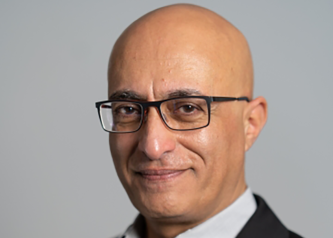

William Benton Professor, Department of Psychology
Boaz Keysar studies how people communicate, negotiate, and make decisions. Specifically, Keysar focuses on how bilingualism and multilingualism affect thinking and decision-making. He discovered the Foreign Language Effect (FLE), the idea that thinking in a foreign or non-native language systematically affects the ways in which people make choices. Keysar’s work has explored the influence of accents on trustworthiness and credibility; the effect of culture on perspective taking; communication and miscommunication among spouses and among physicians; and how foreign language affects a diverse array of topics, including but not limited to risk perception, health behaviors, moral principles, and business and peace negotiations. These studies have involved participants from Mainland China, Hong Kong, Korea, Italy, Israel, France, the Netherlands, and more. Supported by the Yuen Campus in Hong Kong, his most recent study evaluates how the use of language can reduce COVID-19 vaccine hesitancy in Hong Kong. Keysar mentors students who are conducting international work in his Multilingualism & Decision-Making Lab, the majority of whose native tongues are not English. Their research includes how proposals for peace negotiation amidst the Israeli-Palestinian conflict are evaluated depending on the language they are received in, conducted by PhD student Leigh Grant; how bilingual speakers think about emotions, conducted by PhD student Zeynep Aslan; and how people create psychological distance by talking about embarrassment in a foreign language, conducted by PhD students Veronica Vazquez-Olivieri and Becky Lau. In his free time, Keysar enjoys cooking. As the chef of their home, he aspires to elevate his wife’s level of happiness through his cooking.
Q: Why is international collaboration important in your field of study?
A: My lab studies how language affects the way we think, not just in English but in a variety of languages, which means the research is inherently international. There’s a lot of benefit to having collaborators who truly understand the culture and language, helping to anchor us in the local context. There are studies I could not have done on my own because the research wouldn’t have been as well-informed without the expertise of my international collaborators.
Q: How has your work with international partners been beneficial to you and your career, specifically?
A: Working with international partners is a lot of fun, and it motivates me to learn more languages.